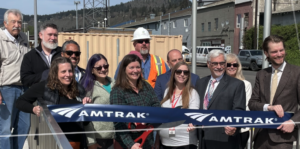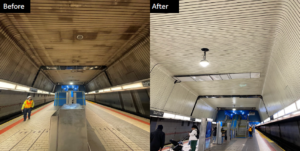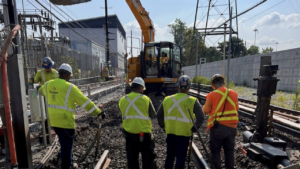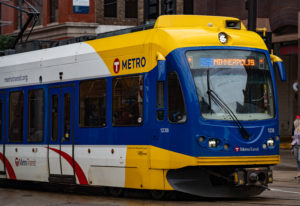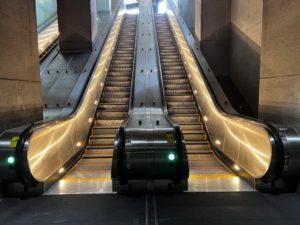MWAA: Silver Line costs increase due to design modification
Written by Jenifer Nunez, assistant editor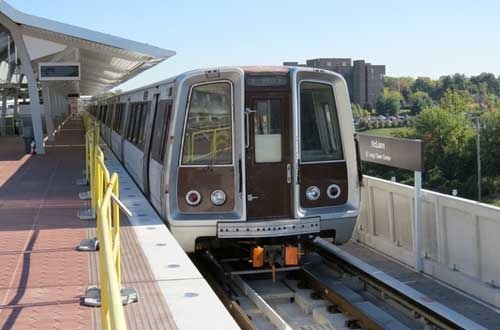
The Metropolitan Washington Airports Authority (MWAA) says that design modifications made to enhance the safety and reliability of the Metrorail Silver Line, along with remaining work to finalize Phase 1 of the overall project, will add $76 million, or about 2.6 percent, to the previously announced Phase 1 cost. The new Phase 1 cost remains within the original federally approved Phase 1 budget.
Toll rates on the Dulles Toll Road will not be affected and rates will remain at current levels through 2018; the previously published, decades-long toll rate schedule will remain unchanged. Revenue from tolls is one of several sources of funding for the Silver Line project, which MWAA is constructing for the Washington Metropolitan Area Transit Authority (WMATA).
A recently concluded global settlement with the construction contractor for Phase 1, Dulles Transit Partners, along with the resolution of other outstanding matters – including the close-out of Virginia permits which allowed Phase 1 work within Routes 7 and 123 in Tysons Corner and the execution of contracts to supplement certain Phase 1 work, as required by WMATA – has allowed MWAA to project a final Phase 1 close-out cost of $2.982 billion, which represents an additional cost of about $76 million and to move to the final close-out of the Phase 1 project. The majority of the remaining work on Phase 1, which opened for business in July 2014, will be completed by the end of this year, including the delivery of 64 new rail cars at a cost of $189.4 million to expand the Metrorail fleet. Final close-out of Phase 1 is expected to occur in 2016.
“The Phase 1 global settlement is an important milestone in the Silver Line project, following its successful launch in July 2014,” MWAA Chief Executive Officer Jack Potter said. “It gives us closure on the most substantial cost component of Phase 1, ensures we will achieve the project’s federal budget targets and allows us to maintain the existing toll schedule for the Dulles Toll Road.”
The ultimate impact of the Phase 1 additional costs may be reduced or even eliminated if the contingency budget for Phase 2 of the Silver Line project is not fully used and the total project, both Phases 1 and 2, comes in at or under the overall project budget.
MWAA also updated the construction schedule for Phase 2 of the Silver Line project, which will extend service from the terminus of Phase 1 in Reston, Va., through Washington Dulles International Airport and into Loudoun County, Va.
More than 150 modifications have been made and integrated into the design for Phase 2. Many of these modifications parallel design changes made in the latter stages of Phase 1 and will enhance the safety and reliability of Phase 2. he modifications, when combined with associated weather and construction delays, have extended the Phase 2 construction schedule by about 13 months.
“More than 100 design changes were made in Phase 1 – a large number of them ordered in the final months of the construction process – requiring additional design, engineering, construction, management and oversight work,” said Charles Stark, MWAA’s executive director of the Silver Line project. “For consistency, many of these same safety and reliability modifications needed to be incorporated into Phase 2 of the project, which then impacted the schedule.”
“The added costs arising from Phase 2 design modifications will remain within the Phase 2 contingency budget of $550 million and will have no effect on the toll rates on the Dulles Toll Road” said Potter. “With our project partners, we are committed to limiting future design changes. Phase 1 is already experiencing ridership beyond expectations and significant construction and development is underway along its path in the Dulles Corridor. We are confident that Phase 2 will experience similar success.”
Construction of the Silver Line is managed by the MWAA and is being built in partnership with Loudoun and Fairfax counties and the commonwealth of Virginia, with financial assistance from the federal government. It will be transferred to WMATA for operation upon completion.

